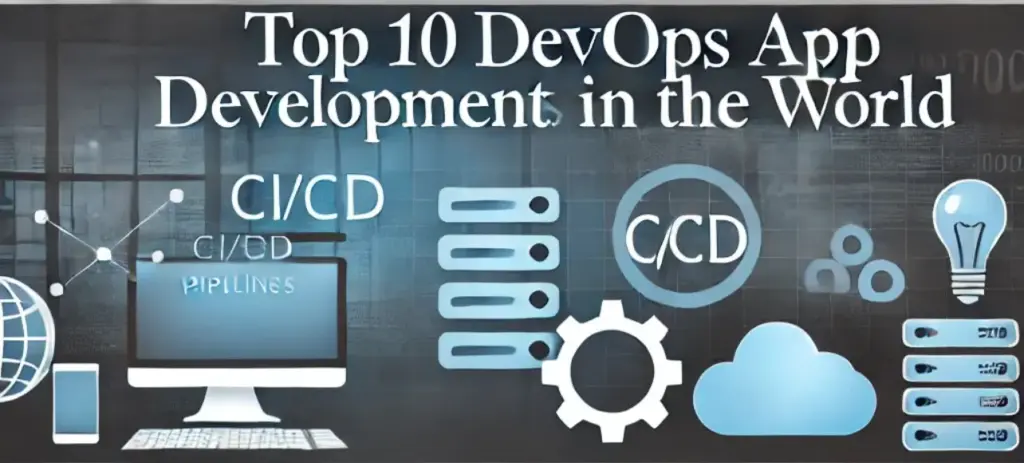1. HashiCorp
HashiCorp has established itself as a leader in the DevOps space with its suite of powerful infrastructure automation tools like Terraform, Vault, and Consul. These tools enable organizations to manage multi-cloud environments with security, scalability, and efficiency. HashiCorp’s open-source products have been widely adopted by businesses looking to optimize their cloud infrastructure operations, offering reliability and flexibility.
- Founded: 2012
- Employees: 1,400+
- Revenue: $500 million (2023)
- Website: www.hashicorp.com
2. Atlassian
Atlassian is a powerhouse in DevOps, offering a comprehensive suite of tools for software development and collaboration. Its flagship products include Jira, Bitbucket, and Confluence, which are indispensable for agile project management, code collaboration, and team communication. Atlassian’s solutions help teams of all sizes streamline their DevOps processes, improve productivity, and enhance project visibility, making it a top choice for enterprises globally.
- Founded: 2002
- Employees: 10,000+
- Revenue: $3.53 billion (2023)
- Website: www.atlassian.com
3. GitLab
GitLab offers an all-in-one DevOps platform that simplifies the development lifecycle by integrating source control, CI/CD pipelines, and project management. Known for its open-core approach, GitLab is favored by development teams seeking a unified platform that can handle everything from coding to deployment. With its ability to streamline collaboration and automate DevOps workflows, GitLab has become a cornerstone for companies adopting DevOps best practices.
- Founded: 2014
- Employees: 2,000+
- Revenue: $400 million (2023)
- Website: www.gitlab.com
4. Red Hat
Red Hat, now part of IBM, has been at the forefront of enterprise open-source software for decades. Their flagship product, Red Hat Enterprise Linux (RHEL), is a critical component in many DevOps infrastructures. Red Hat’s solutions are designed to help companies manage cloud environments, automate operations, and accelerate development with the help of containerization platforms like OpenShift, making them a leader in the DevOps ecosystem.
- Founded: 1993
- Employees: 19,000+
- Revenue: $4.3 billion (2023)
- Website: www.redhat.com
5. Amazon Web Services (AWS)
AWS is the largest cloud computing platform in the world, offering a wide range of DevOps tools such as AWS CodePipeline, CodeBuild, and Elastic Beanstalk. These tools help businesses automate the development, testing, and deployment phases of their applications. With AWS’s vast infrastructure and cutting-edge technology, businesses can scale their DevOps practices efficiently, making it an essential player in the DevOps field.
- Founded: 2006
- Employees: 75,000+
- Revenue: $80 billion+ (2023)
- Website: aws.amazon.com
6. Microsoft (Azure DevOps)
Azure DevOps, part of Microsoft’s cloud computing platform, is a comprehensive solution for managing the full software development lifecycle. It offers services like Azure Repos, Pipelines, and Test Plans, helping development teams automate and manage their CI/CD processes. With Azure DevOps, businesses can seamlessly integrate their development and operations workflows in a cloud-native environment, reducing time to market and improving application quality.
- Founded: 1975
- Employees: 220,000+
- Revenue: $211 billion (2023)
- Website: azure.microsoft.com
7. Docker, Inc.
Docker revolutionized software development with its container technology, allowing developers to package applications and their dependencies in lightweight containers. These containers can run consistently across various environments, making Docker a key player in the DevOps ecosystem. Docker’s focus on portability and efficiency has made it an indispensable tool for modern software development, enabling teams to build, ship, and run applications faster.
- Founded: 2013
- Employees: 300+
- Revenue: $80 million (2023)
- Website: www.docker.com
8. Puppet
Puppet is a leader in IT automation and configuration management, helping businesses automate repetitive tasks, enforce compliance, and manage complex infrastructures. Puppet’s declarative language allows for precise automation of workflows, making it easier to manage infrastructure as code. The company’s solutions are trusted by thousands of enterprises to reduce operational risk and enhance DevOps efficiency.
- Founded: 2005
- Employees: 500+
- Revenue: $100 million (2023)
- Website: www.puppet.com
9. Chef (Progress Chef)
Chef is a widely-used platform for configuration management and automation. It allows organizations to define their infrastructure as code and automate the management of applications across different environments. With Chef, teams can automate everything from cloud resource provisioning to application deployment, making it easier to scale and maintain large infrastructures in DevOps environments.
- Founded: 2009
- Employees: 450+
- Revenue: $70 million (2023)
- Website: www.chef.io
10. CircleCI
CircleCI is one of the most popular CI/CD platforms in the DevOps world, providing a seamless way to automate testing and deployment pipelines. It integrates with popular development tools and allows developers to continuously integrate and deploy code with ease. CircleCI’s ability to handle complex workflows and provide robust analytics makes it a favorite for engineering teams looking to optimize their software delivery processes.
- Founded: 2011
- Employees: 600+
- Revenue: $150 million (2023)
- Website: www.circleci.com
In conclusion
These top 10 DevOps app development companies are leading the way in transforming how businesses manage their software development and operations. By offering powerful tools for automation, collaboration, and cloud infrastructure management, these companies enable organizations to innovate faster, scale efficiently, and maintain high levels of security and reliability. Whether you’re a startup looking for agile development solutions or a large enterprise seeking to optimize your cloud infrastructure, these DevOps companies provide the expertise and technology to help you stay competitive in today’s fast-paced digital world




